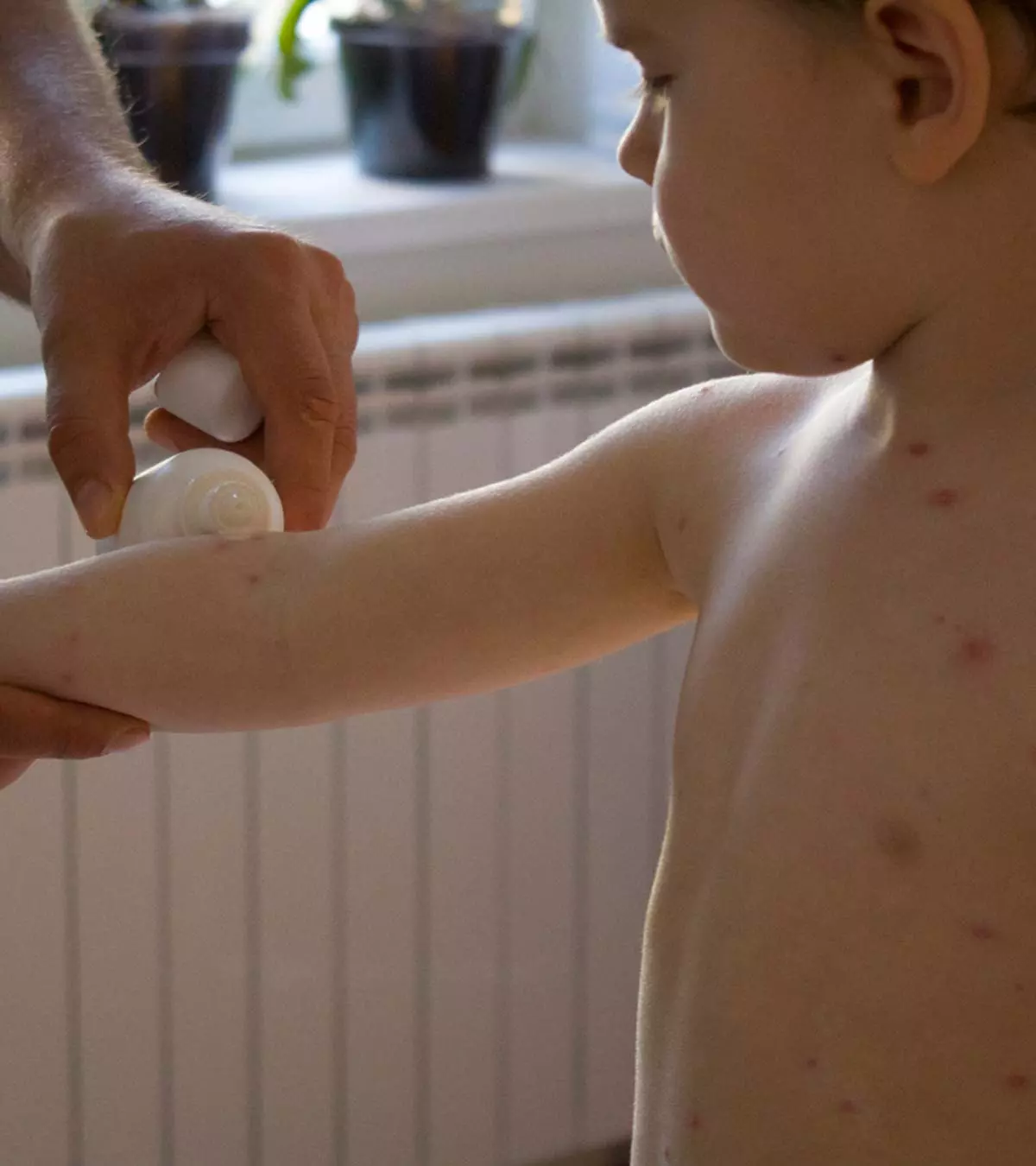

Image: Shutterstock
You’re happily married and want to plan your family, but don’t give up if having a child seems to you a long way off. Identifying and resolving the reasons for difficulty in conceiving can significantly improve the chances of pregnancy. There are various reasons you could have trouble conceiving, including infertility or a medical problem.
This post provides you with advice on how to increase your chances of becoming pregnant with some lifestyle and dietary modifications that you may adopt.
Factors That Can Affect Conception
A couple’s chances of conception could be hindered or delayed due to several reasons, including infertility in the man or the woman. Here are a few factors that could affect your chances of conception (1):
In women:
- Increased maternal age (over 30 years) as the fertility rate starts declining
- Uterine fibroid (2)
- Ectopic pregnancies
- Endometriosis
- Pelvic inflammatory disease
- Polycystic ovarian syndrome (PCOS)
- History of STD (sexually transmitted diseases)
- Wrongly calculated fertile period
- Blocked fallopian tube
- Irregular menstrual cycle
- Thyroid imbalance (3)
- Premature ovarian failure (POF) (4)
- Diminished ovarian reserve (DOR) (5)
In men:
In general:
- Any pelvic or abdominal surgery (8)
- Lifestyle problems
If an underlying medical condition is not hindering your chances of pregnancy, you could try improving your odds of conception with some effort.
Top 21 Tips To Improve Your Chances Of Pregnancy
Here are a few tips to better your chances of getting pregnant.
- Health checkup: Go for a preliminary health checkup to ensure that you are medically fit. You can take ovulation and sperm tests, which are the essential parameters for deciding the couple’s ability to conceive. Moreover, awareness of one’s own health ensures a safe and healthy pregnancy.
- Maintaining body weight: The weight of the woman plays a crucial role in conception. Being overweight or underweight leads to hormonal changes in the body, which can hinder your chances of getting pregnant. Following a healthy diet and staying physically fit with exercise can help you maintain the ideal body weight.
- Healthy lifestyle: A healthy lifestyle can help in improving your fertility. Avoid drinking alcohol, smoking, taking illicit drugs as they can adversely affect your chances of getting pregnant.
Avoid excess consumption of junk foods and include fruits, veggies, meat, fish, and dairy products (especially organic foods) in your diet. Also, exercise regularly to maintain your body weight. This will further enhance your fertility by promoting sperm quality and healthy ovum.
- Monitor ovulation period: Track your ovulation period to know the right time for intercourse for conception. For example, if you have a 28-day menstrual cycle, you will ovulate on the 14th day. So, the fertile window opens from the 10th to 18th day, which is ideal for having sex. You may also speak to a gynecologist for advice.
You can also check the consistency of cervical mucus and the basal body temperature to track your ovulation period.
- Follicular monitoring: If you are unable to track ovulation on your own, the doctor can help you with follicular monitoring. With the blood hormone test and ultrasound of the ovaries, they can tell you the right time of ovulation.
- Fertility-boosting foods: Nutrients like folic acid, vitamins C, A, D, and E, zinc, potassium, and copper are essential for enhancing fertility. These foods, which can be obtained from your diet or supplements, help in the production of healthy ovum and improve the quality of sperms. The foods you should eat include (9):
- Green leafy vegetables: Spinach, kale, broccoli.
- Oily fish: Sardines, salmon, mackerel.
- Zinc-rich foods: Cashew nuts, pumpkin seeds, shellfish, organic grass-fed lamb and beef.
- Complex carbs: Wholegrain bread, rice, pasta, sweet potatoes.
- Protein foods: Chicken, dairy, nuts, turkey, tofu, seeds, eggs, legumes.
- Reduce stress: Stress can cause hormonal fluctuations that can affect fertility in both men and women (10). Meditation, breathing exercises, and yoga are some ways to reduce the stress levels.
- Consult a doctor regarding medicines: If you are taking medications for any underlying health issues, tell your doctor about your decision to start a family. Some medicinal drugs such as steroids, alpha blockers, antipsychotics, and NSAIDs can affect fertility (11) (12).
- Take prenatal vitamins: If you are planning for pregnancy, talk to your doctor and start taking prenatal vitamins. They can compensate for any nutrient deficiencies that could delay conception.
- Get enough sleep: A good night’s sleep is necessary for the body to maintain proper metabolism and hormone production. So, ensure that you sleep for seven to eight hours a day.
- Physical intimacy: During intercourse, avoid sex positions with the woman on top to prevent the leakage of the semen. Try something like the missionary position, with the man on top, to ensure that more fluid enters into your vagina and increases the chances of conception.
Remain in a horizontal position for some time at the end of the intercourse, so that the sperm gets enough time to travel through the vagina and into the ovum.
- Avoid lubricants: Using lubricants during sex can slow down the mobility of the sperm (13), restricting them from reaching the ovum. Also, vaginal sprays or tampons can dry out the vagina, thereby limiting the sperm flow.
- Cut down the caffeine intake: Excessive intake of caffeine can hamper fertility and prolong your conception (14). Excess caffeine also poses a high risk of miscarriage. So limit your intake of caffeine to 300mg per day during pregnancy (15).
- Acupuncture: Putting pressure on specific body points can alleviate stress and help in bringing back hormonal balance in the body. This further leads to the production of healthy ovum and sperms (16).
- Cut down on refined carbohydrates: It is better to avoid the intake of refined carbohydrates as they increase the glucose levels in the blood. This further causes ovulation problems (17).
- Stop contraceptive pills: You need to stop taking the contraceptive pills at least four to six months before you plan your pregnancy. The body needs some time to regain the normal hormonal balance after you stop using birth control pills.
- Men should avoid biking or cycling: An optimum temperature, which is one to two degrees lower than the average body temperature, should be maintained for the survival of the sperm in the testicles. So, men should avoid wearing tight underwear, placing laptops on the lap, cycling or biking. Maintaining the right temperature of testicles is vital for the production of healthy sperms.
- Avoid eating too many sweets: Excessive consumption of sugary stuff can lead to overproduction of adrenaline, which can hamper the production of progesterone hormone and reduce the chances of conception (18).
- Female orgasm: It plays a significant role in conception by creating a pathway for the sperm to reach the ovum through contractions. It also leads to the secretion of natural lubricants that contribute to the sperm motility.
- Avoid strenuous exercises: Moderate and regular work out helps a woman to stay healthy and increase the chances of conception. However, avoid stressing your body by indulging in excessive workouts as it can reduce fertility.
- Men should manage their weight: Obese or overweight men are likely to have a low sperm count. Being overweight can also cause hormonal changes that in turn reduce fertility (19). Thus, they should work on reducing the weight to increase the chances of conception.
Maintaining a healthy lifestyle and keeping track of ovulation can help you increase your chances of getting pregnant. Before planning a pregnancy, it’s important to maintain healthy body weight and get preliminary health checkups done before planning pregnancy. Preconception health screening allows your doctor to spot any concerns and prescribe folic acid supplements, which are required in the first few weeks of pregnancy. Before planning a pregnancy, you can stop taking contraceptive medications. You may also avoid alcohol, cigarettes, and other similar substances to improve the chance of pregnancy and to have a healthy baby.
References
1. Risk factors for Infertility; RESOLVE: The National Infertility Association
2. Fibroids; USC Fertility
3. Pregnancy and Fertility in Thyroid Disorders; British Thyroid Foundation (2015)
4. Premature ovarian failure (POF); RESOLVE:; RESOLVE: The National Infertility Association
5. Diminished ovarian reserve at a glance; Care New England Health System
6. Erectile Dysfunction (ED); Weill Cornell Medicine
7. About Premature Ejaculation; Fertilitypedia
8. About abdominal surgery; Fertilitypedia
9. Five super foods to boost your fertility; Nutritionist Resource
10. Infertility: Is it Stress Related?; Cleveland Clinic
11. Drugs and Male Fertility; Cleveland Clinic
12. Causes of Infertility; NHS
13. Anderson L, Lewis SE, McClure N.; The effects of coital lubricants on sperm motility in vitro; Hum Reprod. (1998)
14. E Ricci et al.; Coffee and caffeine intake and male infertility: a systematic review; Nutr J. (2017)
15. S Morgan, G Koren, P Bozzo; Is caffeine consumption safe during pregnancy?; Can Fam Physician. 2013
16. How Does Acupuncture For Fertility Work? Increase Chance Of Conception Without Side Effects; Pacific College Of Oriental Medicine
17. Fertility Diet: Rethink Refined Carbs; Nordica Fertility Center (2015)
18. K Karchmer; Why Sugar and Your Fertility Don’t Mix; Conceivable Inc.
19. Healthy weight; Fertility Coalition
Community Experiences
Join the conversation and become a part of our nurturing community! Share your stories, experiences, and insights to connect with fellow parents.
Read full bio of Dr. Asmita Kaundal
Read full bio of Rebecca Malachi














